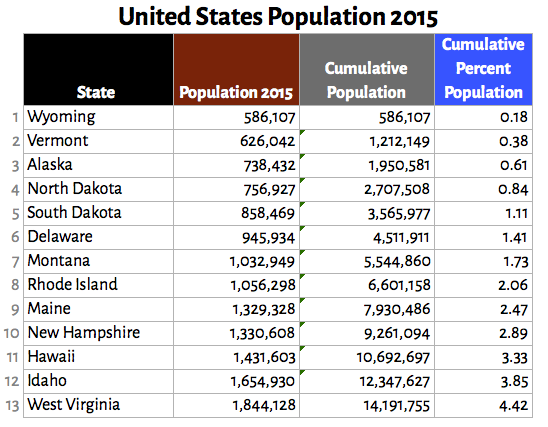3 December 2016
Sen. Ankney’s resolution supporting the Regulation Freedom Amendment

Kneejerk loathing of government regulation is fundamental to the Republican creed. “Elect me and I’ll free you from bureaucrats and innovation choking red tape” is, along with “I’ll cut waste, fraud, and abuse,” one of politics’ most enduring — and empty — promises. But it wins votes and elects men like Rep. Paul Ryan, who includes reducing regulations in his legislative priorities for 2017:
Congressional Republicans, stunned by their own good, if complicated, fortune, said on Wednesday [9 Nov.] that they would move quickly next year on an agenda that merges with President-elect Donald J. Trump’s, repealing the Affordable Care Act, cutting taxes, confirming conservative judges, shrinking government programs and rolling back regulations.
Ryan’s not alone. Montana State Senator Duane Ankney (R-Colstrip), booster of coal, and a tireless and effective advocate for his community, wants Montana to make a statement against what he deems excessive regulation. His method? A joint resolution, LC0498, urging Congress to adopt the Regulation Freedom Amendment. Here’s the current draft of the joint resolution :
WHEREAS, the growth and abuse of federal regulatory authority threaten our constitutional liberties, including those guaranteed by the Bill of Rights in the First, Second, Fourth, and Fifth Amendments of our Constitution; and
WHEREAS, federal regulators must be more accountable to elected representatives of the people and not immune from such accountability; and
WHEREAS, the Declaration of Independence decried the imposition by the central government of “an absolute tyranny over these states” and a central government that “erected a multitude of new offices and sent hither swarms of officers to harass our people and eat out their substance”; and
WHEREAS, states too often find themselves in a similar position today; and
WHEREAS, the United States House of Representatives has passed with bipartisan support the REINS Act to require that Congress approve major new federal regulations before they can take effect; and
WHEREAS, even if enacted, a law may be repealed or waived by a future Congress and President; and
WHEREAS, an amendment to the United States Constitution does not require the President’s approval and cannot be waived by a future Congress and President.
NOW, THEREFORE, BE IT RESOLVED BY THE SENATE AND THE HOUSE OF REPRESENTATIVES OF THE STATE OF MONTANA:
That the Sixty-fifth Legislature urges Congress to propose the Regulation Freedom amendment to the United States Constitution as follows:
Whenever one quarter of the members of the United States House of Representatives or the United States Senate transmits to the President their written declaration of opposition to a proposed federal regulation, it shall require a majority vote of the House of Representatives and the Senate to adopt that regulation.
BE IT FURTHER RESOLVED, that the Secretary of State forward copies of this resolution to each member of Congress and to the principal leaders in all state legislative chambers.
There are two problems with Ankney’s joint resolution. One is that it's an embrace of a primal scream masquerading as serious policy. The other is the dubious assertion that the REINS Act has genuine bipartisan support.
The RFA, of course, would empower a minority of legislators representing less than four and one-half percent of the nation to pull a regulation out of the executive branch and into the legislative branch.
Were the sovereign citizens of the United States ever foolish enough to adopt such an amendment, they would ensure eternal gridlock in Congress. Rule making belongs in the executive branch. That’s why laws contain clauses directing agencies to adopt rules implementing the legislation.
The RFA is not a serious proposal for amending the Constitution. It’s simply a way for regulation averse politicians to howl at the moon after curfew.
But the joint resolution’s fifth whereas, “…the United States House of Representatives has passed with bipartisan support the REINS Act…,” is an attempt to make a serious statement of fact — an attempt that’s intellectually dishonest.
The REINS Act, H.R. 427, the “Regulations from the Executive in Need of Scrutiny Act of 2015,” passed the U.S. House on 28 July 2015 by a vote of 243 Aye, 165 Nay, and four Republicans and 21 Democrats not voting. Of the 243 Ayes, 241 were cast by Republicans. The other two were cast by Blue Dog Democrats Collin Peterson (MN) and Henry Cuellar (TX). The support for the bill was 99.2 percent Republican.
Ankney’s assertion that a winning vote that’s 99.2 percent Republican — that’s 99.2 percent monopartisan pure — is bipartisan because a couple of Blue Doggiecrats voted for the measure is oats that have passed through the horse.
Instead of claiming that the vote for the REINS Act was bipartisan, Ankney should have said:
WHEREAS, the United States House of Representatives passed the REINS Act to require that Congress approve major new federal regulations before they can take effect by a vote of 243–165, with 241 Republicans and two Democrats voting for the bill; and
Ankney, incidentally, was not the only legislator to ask for a bill embracing the RFA. Rep. Forrest Mandeville asked for LC0871, which is now on hold, where it should stay.

